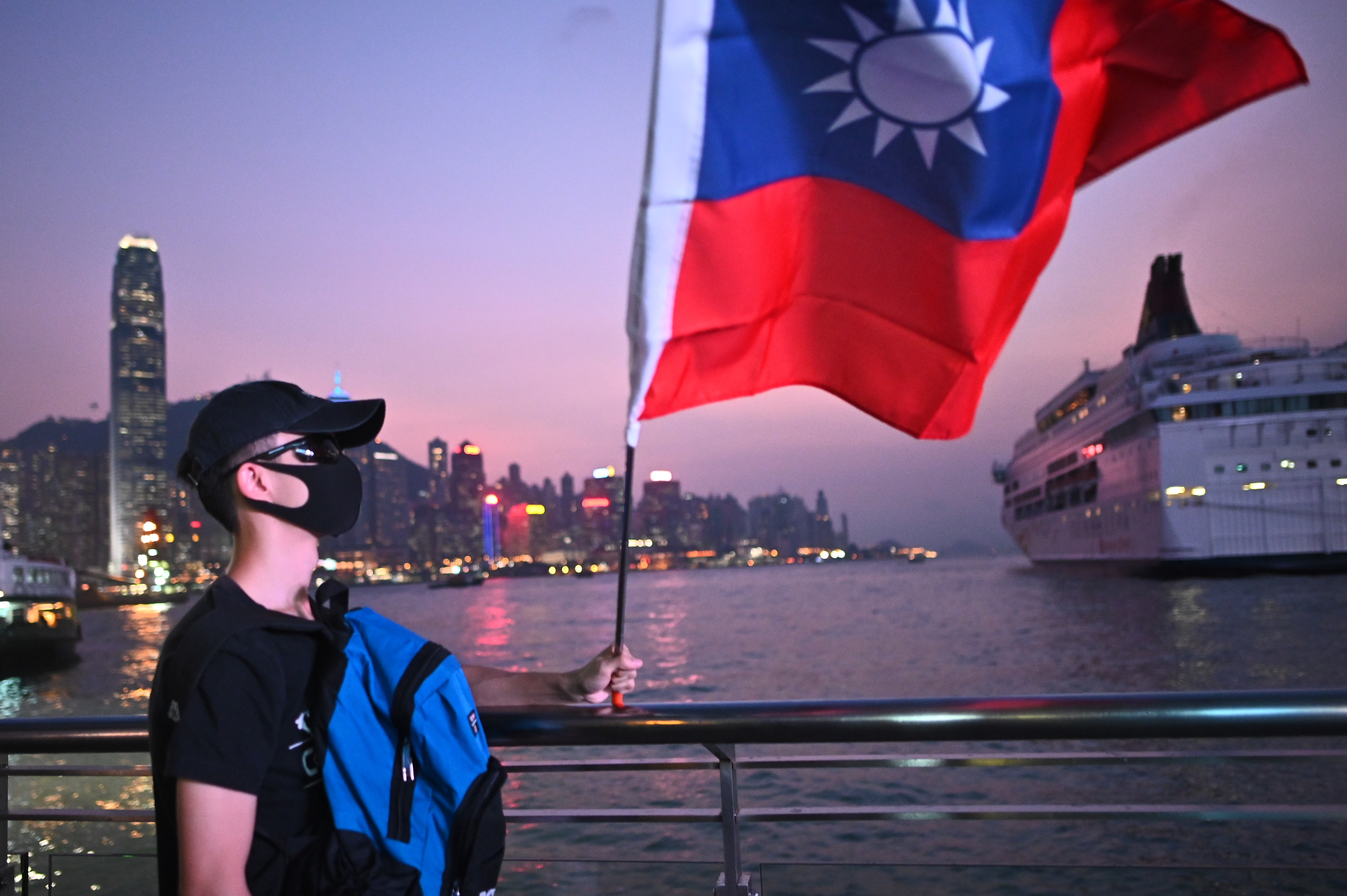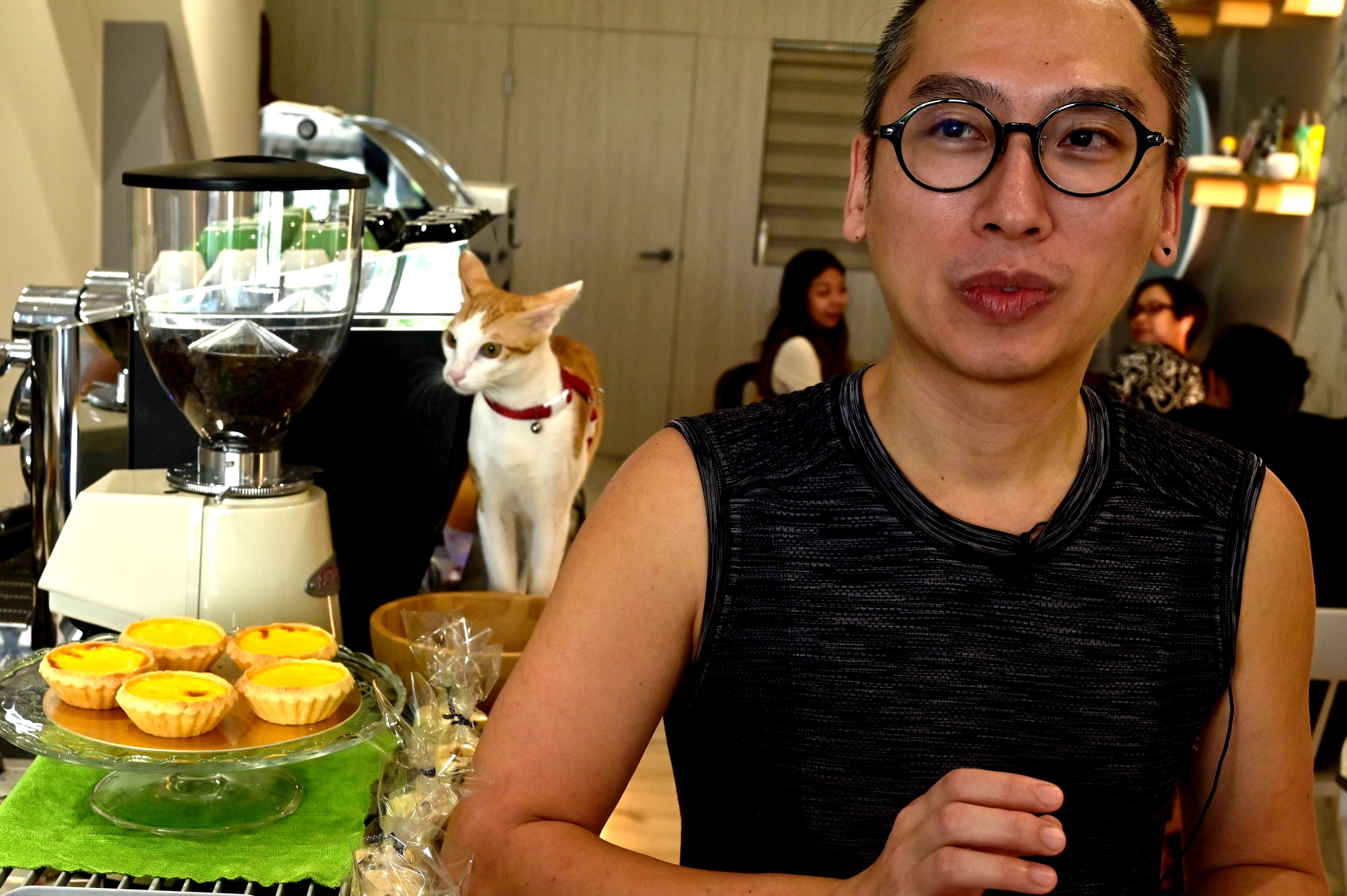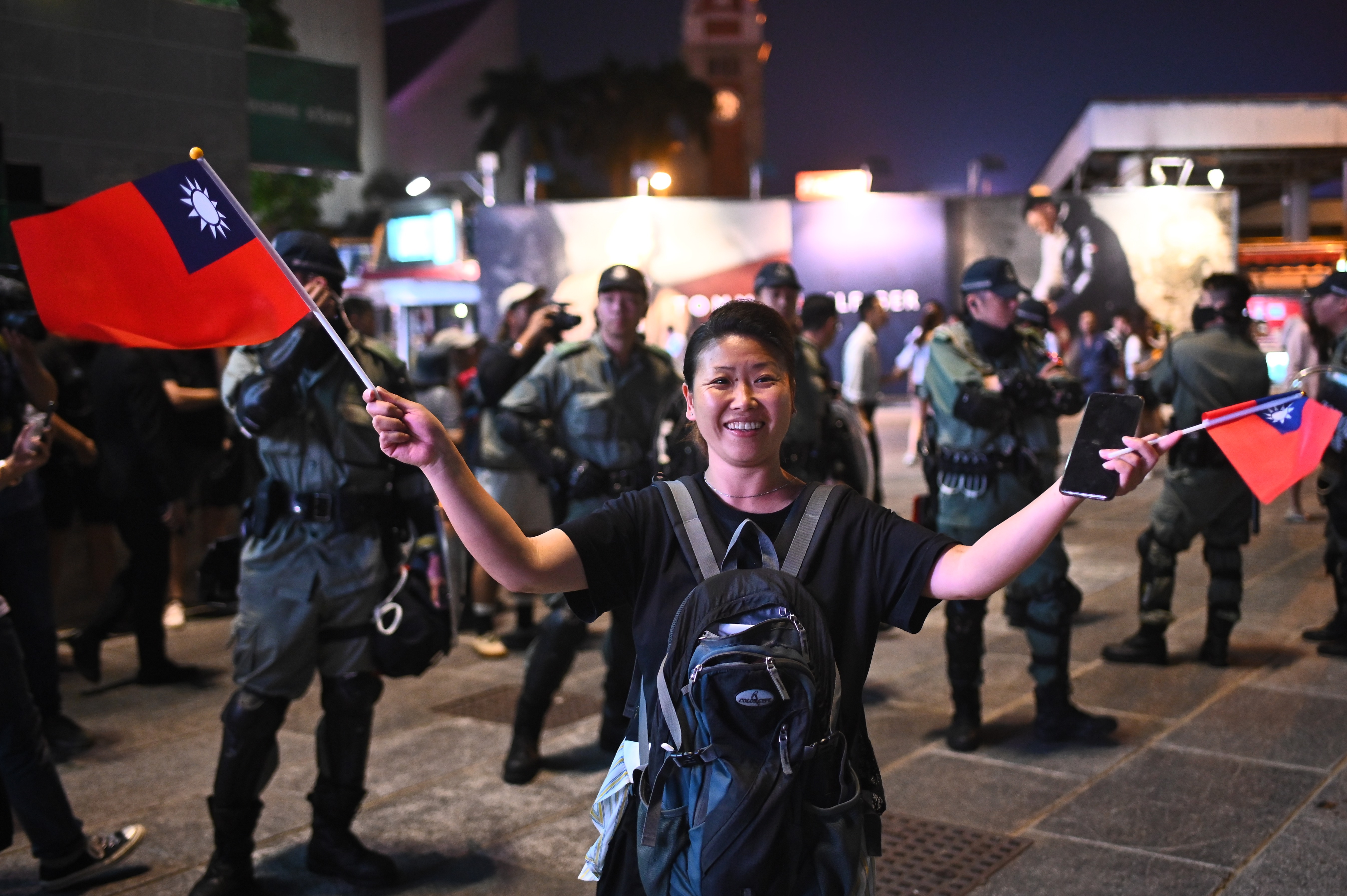Mainland Chinese spies have used violence and kidnappings to interrupt the ongoing Hong Kong democracy movement, according to a recent 60 Minutes Australia exposé on Chinese defector Wang “William” Liqiang.
From the 22nd floor of a Hong Kong tower, Wang’s squad stole U.S. military intelligence. In fact, much of the unit’s theft of U.S. military intel took place in a series of foreign countries. The current series of Hong Kong protests are now in their ninth month, having begun back in late April as a protest against proposed extradition rules that would allow Hong Kongers to be sent to China for trial. At the ASEAN summit in Thailand in August, British Foreign Secretary Dominic Raab reminded Chinese Foreign Minister Wang Yi that China must live up to its legal commitments to the freedoms enshrined in the 1997 Joint Declaration, according to the South China Morning Post.
While spying for Beijing in Hong Kong, Wang was in an organization that fronted as an investment company — his mission was to sabotage Hong Kong’s independence movement. Wang’s group attacked the pro-independence activists verbally, gathered information about them, exposed their personal information (and that of their family members) to silence them, and sent Mainland spies to infiltrate the pro-Hong Kong Independence student groups. He persuaded Hong Kong students to scrap ideas of independence and to instead be patriotic towards Beijing and the CCP.

A man wearing a mask holds a Taiwanese flag as he joins others at a rally to mark Taiwan’s National Day, in the Tsim Sha Tsui district in Hong Kong on October 10, 2019. – Taiwan’s National Day, also called called Double-Ten in a reference to the nationalist Republic of China set up by Sun Yat Sen on October 10, 1911, ending centuries of Chinese dynastic rule. (Photo by Philip FONG / AFP) (Photo by PHILIP FONG/AFP via Getty Images)
Defector Wang Liqiang was one of those who ordered the kidnapping of pro-democracy bookshop principals in and around Hong Kong in 2015 — he personally delivered the kidnap order to the six-man kidnapping team assigned to bookseller Lee Bo. Four persons associated with the Causeway Bay Bookshop (銅鑼灣書店) or the Mighty Current publishing house, both of which sold books critical of Communist China, went missing in October 2015, and another went missing a few weeks later. Those kidnapped included Lui Bo (呂波, kidnapped in Shenzhen, China), Cheung Jiping (張志平, went missing in Dongguan, China), Gui Minhai (桂民海, kidnapped in Pattaya, Thailand), Lam Wingkei (林榮基, Hong Kong), and Lee Bo (李波, Hong Kong). (RELATED: Hunter Biden’s Continued Chinese Ties)
In Taiwan, Mainland Chinese spies are currently endeavoring to prevent the election of incumbent Tsai Ing-wen in the upcoming Jan. 11, 2020, presidential election, hoping to sideline Tsai’s pro-U.S. governing style. Wang used his communist cyber army to attack Taiwan university students’ Facebook accounts. The cyber spies used altered IP addresses so as to avoid being identified. As Wang noted in the 60 Minutes Australia segment, the spies’ pro-Beijing messages were used to push Taiwan public opinion toward Tsai’s opponent, KMT-affiliated Han Kuo-yu. Wang’s old spy group is still dedicated to infiltrating Taiwan’s media, temples, and grassroots organizations.

This picture, taken on November 13, 2019, shows Chow Chung-ming, a former computer programmer in Hong Kong, at his coffee shop in Kaohsiung, southern Taiwan. – Protests that have paralysed Hong Kong for nearly six months are pushing residents to seek new lives abroad, with many turning to nearby democratic Taiwan to escape the uncertainty at home. (Photo by Sam Yeh / AFP) / TO GO WITH: Taiwan HongKong China politics immigration, FOCUS, by Amber Wang in Kaohsiung with Yan Zhao in Hong Kong (Photo by SAM YEH/AFP via Getty Images)
There may have been up to 60 cases of Chinese spying against Taiwan since 2002, according to a piece by Aaron Jensen in The Diplomat. Taiwan opened its universities to Mainland students in 2009, and Mainlander Zhou Hongxu studied at Taipei’s National Chengchi University between 2012 and 2016. In late summer of 2016, Zhou returned to Taipei and offered an old classmate, now at the Ministry of Foreign Affairs, money and a free trip to Japan in exchange for classified information. In a related case, in April 2016 the Taiwan High Court sentenced former PLA captain Zhen Xiaojiang (鎮小江) for his role in recruiting retired and active Taiwanese military officers to spy for Beijing, according to the Taipei Times. (RELATED: China Sends Letter To More Than 30 Foreign News Outlets Urging More ‘Objective’ HK Reporting)
Moreover, Taiwan’s Deputy Foreign Minister, Su Qianxu, is convinced that Taiwan’s political system is being attacked by Beijing through cyber channels. Su warns that all democratic nations should pay attention to what could be Chicom meddling in Taiwan’s January 2020 presidential election, insinuating that such pro-Beijing interference could be coming to other nations as well.
In Australia, Wang Liqiang noted, Chinese spies have operated with impunity. Now living in Australia, ex-spy Wang Liqiang has moved three times in just five months, and is frightened by the communist surveillance squads that follow him around.

A woman waves Taiwanese flags in front of a group of Hong Kong police as she joins others at a rally to mark Taiwan’s National Day, in the Tsim Sha Tsui district in Hong Kong on October 10, 2019. – Taiwan’s National Day, also called called Double-Ten in a reference to the nationalist Republic of China set up by Sun Yat Sen on October 10, 1911, ending centuries of Chinese dynastic rule. (Photo by Philip FONG / AFP) (Photo by PHILIP FONG/AFP via Getty Images)
According to Andrew Hastie, Chair of the Parliamentary Joint Committee on Intelligence and Security, Melbourne car-dealer Nick Zhao was cultivated by the Chinese government to run in Australia’s commonwealth-parliament election as a Liberal Party candidate representing the very Chinese area of Chisholm. Zhao was offered a $1 million Australian sum (US$680,000) if he would run for the federal parliament position representing Chisholm, according to a piece by Alan Boyd in Asia Times. (RELATED: Reuters Changes Every Paragraph, Headline In Article About Hong Kong Protests)
Australian authorities have accused Chen “Brian” Chunsheng of being the spy that pushed Nick Zhao to infiltrate the Aussie Parliament. In Hong Kong, Chen has been in business with China’s main weapons company, NORINCO (China North Industries Group Corporation Ltd., 北方工業). Brian Chen’s firm, Prospect Time International Investments, actively promotes Beijing’s “Belt and Road” development scheme, and some of his firms have connections to the People’s Liberation Army. Duncan Lewis, the just-retired chief of the Australian Security Intelligence Organisation (ASIO), has accused Beijing of trying to take over Aussie politics through spying, according to the Asia Times.
When Zhao spurned Chen’s request to infiltrate the Aussie parliament — instead asking Australian national security authorities for help — he wound up dead on a hotel room floor in Melbourne. Nick Zhao’s suspicious death in March begs the question of foul play by the alleged Chinese spy ring. Brian Chen has a habit of dressing up in a Chinese military uniform and posing as a journo at international conferences, bolstering the notion that he is acting as a CCP operative Down Under. China’s plot to use Zhao as a CCP-friendly operative has Andrew Hastie concerned for Australian sovereignty, Australian values, and the Australian people, according to the 60 Minutes Australia segment.
Whether in Hong Kong, Taiwan, or Australia, Chinese spying has left a trail of intimidation, extortion, political interference, and sometimes even murder. As Communist China tries to recapture its perceived Tang-dynasty glory, peoples in disparate parts of the world are realizing that Beijing’s intentions are often predatory, extractive, and imperialistic in nature. The challenge for Westerners, Central Asians, Africans, and others is to thwart their depredations, hang onto sovereignty, and trade in a way that protects one’s own culture and resources.
Sabin Geyman was a journalist in Taiwan in the 1990s and a longtime language analyst for the US Department of Defense. His most recent book is Reaping the Whirlwind: Broken Foundations, Lukewarmness, and Impending Judgment.


